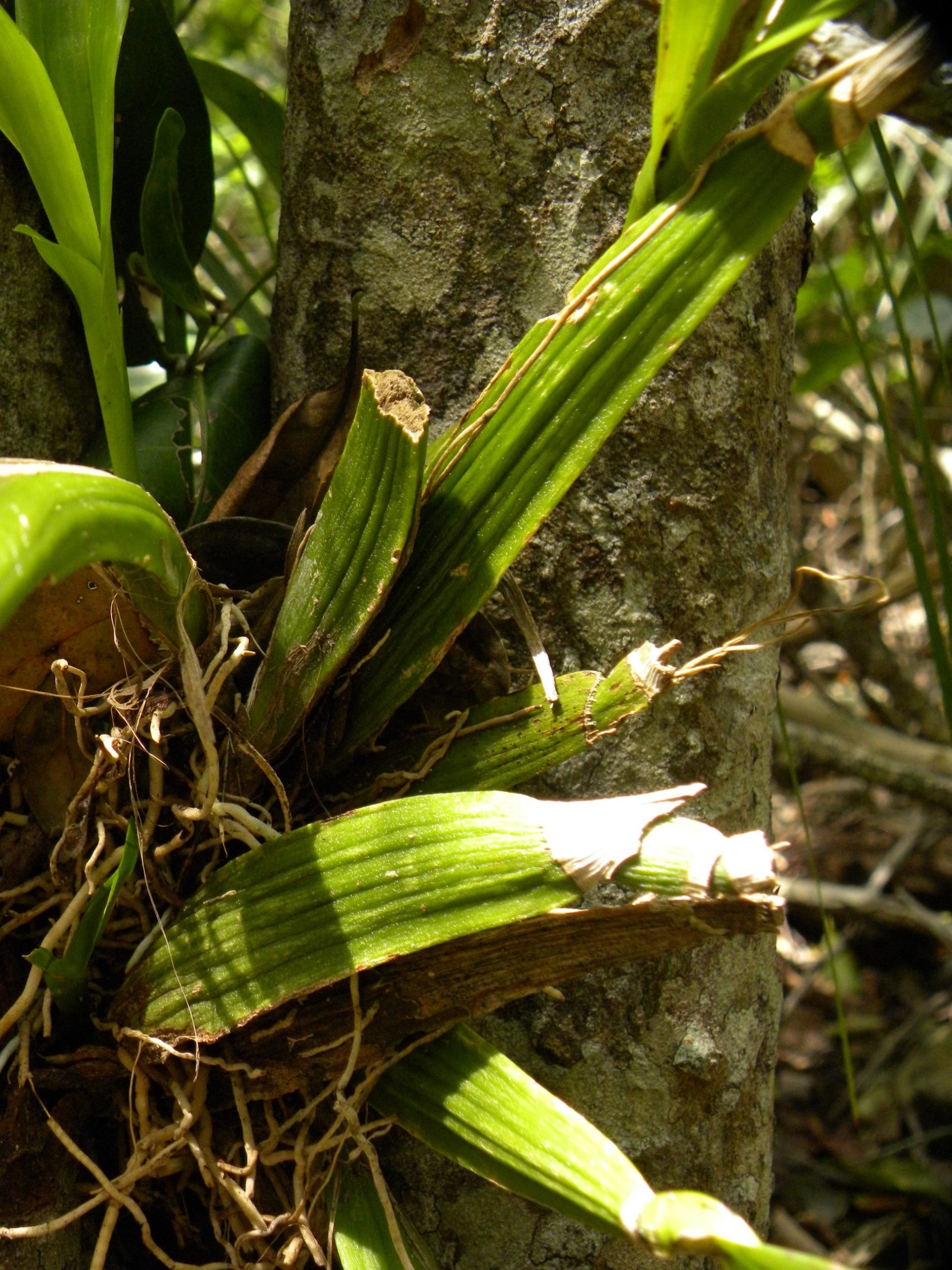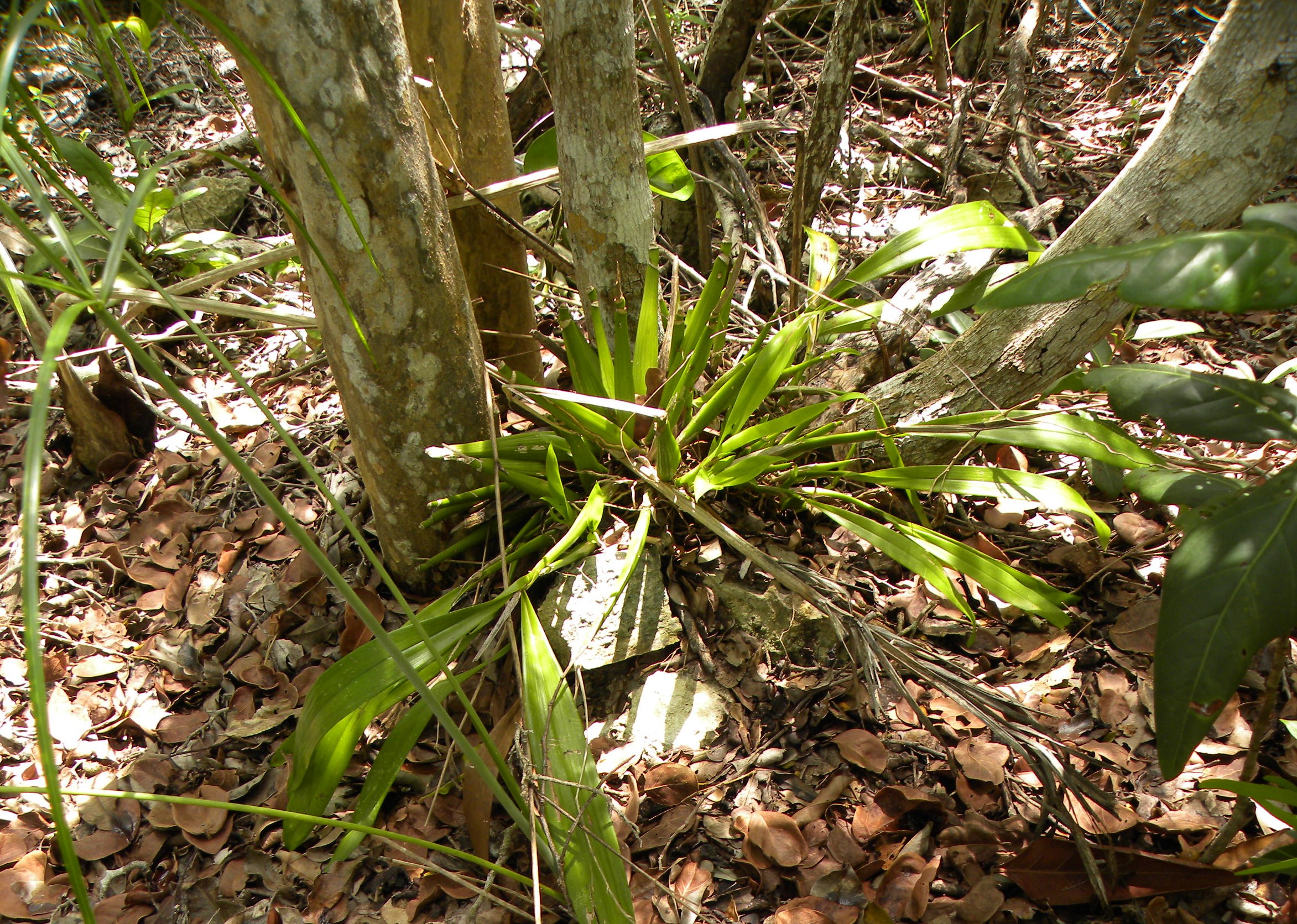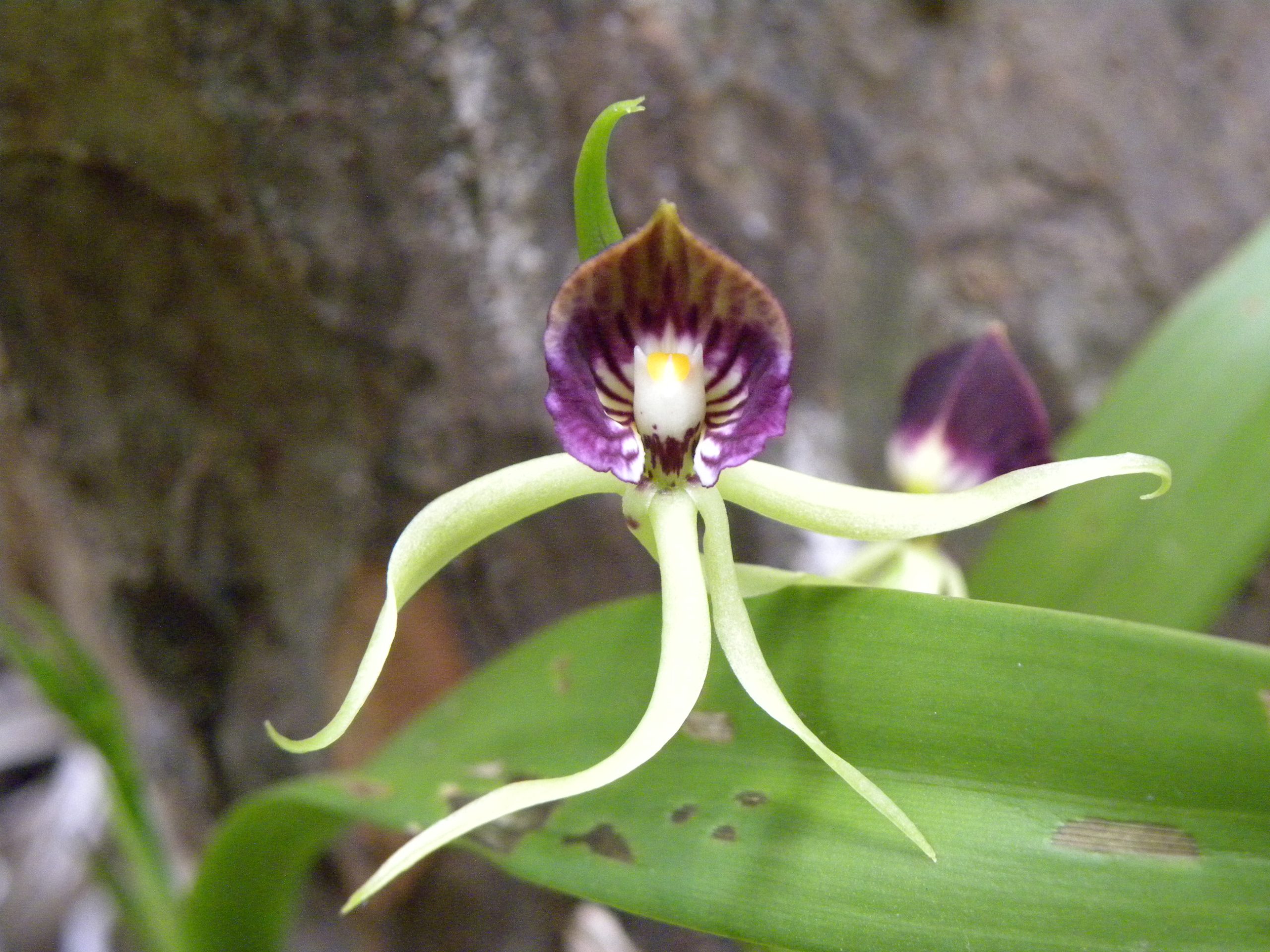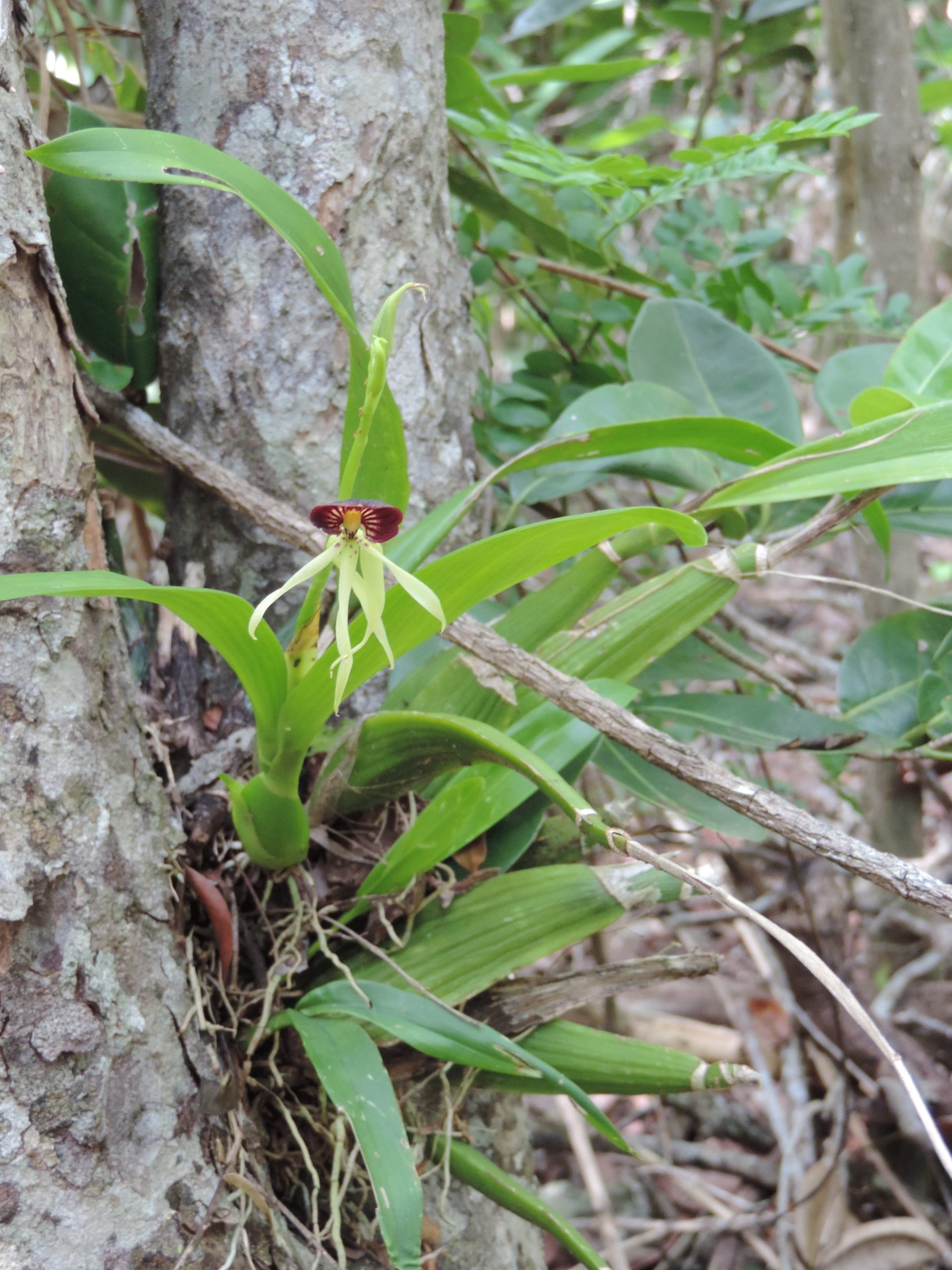Habit: Prosthechea cochleata grow as an epiphyte on trees or among leaf detritus and rocks. It produces a very short rhizomatous stem that is covered with secondary stems that are expanded to form elongate pseudobulbs up to 20 cm in length. From the top of the pseudobulb 1-3 flattened linear leaves emerge that are up to 25 cm in length. The pseudobulb is flattened along its axis.
The zygomorphic flowers are arranged in lax racemes up to 12 cm in height and contain 1-12 flowers. The flowers have bracts and are non-resupinate with the labellum to the top of the flower. The calyx has 3 greenish yellow sepals. The corolla has 3 petals with 1 forming the labellum. The labellum forms a hood 2 cm in height and width that surrounds the green and purple column. The hood is a dark purple/red with light green lines on it. The ovary is inferior. The fruit is a 3 lobed/sided hanging capsule at maturity up to 4 cm in length that opens along six suture lines and hangs allowing wind to assist in seed dispersal.
Habitat: Prosthechea cochleata grows in trees above wet sinkholes in Dry Broadleaf Evergreen Formation – Forests (coppice).
Distribution: Prosthechea cochleata occurs in the northern pine islands as well as Florida, the Caribbean and Central and South America.
Medicinal/Cultural/Economic usage: While there are no medicinal uses of Prosthechea cochleata like all orchids they are prized for their beautiful flowers. ALL orchids are protected internationally by the Convention on the International Trade of Endangered Species (CITES) and should not be collected from the wild.



